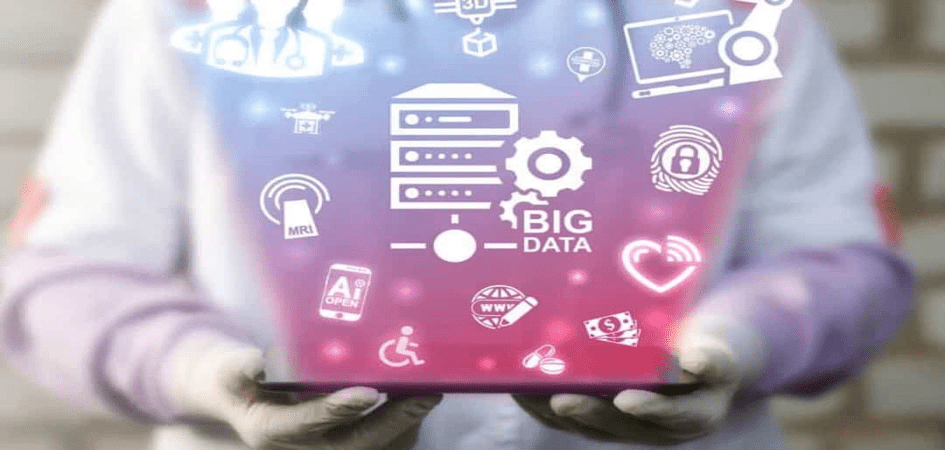Over the past few years, there has been a significant increase in the amount of healthcare data generated every day. This data, also known as big data, includes electronic health records (EHRs), medical imaging, clinical trial results, and many other data. With the help of advanced analytics and machine learning techniques, healthcare professionals can use this data to gain valuable insights into patient health, identify potential risks, and develop more effective treatment plans. It is also predicted that within the next 2 years, the big data market in the healthcare industry will cross $70 billion at a growth rate of 568 percent. In this blog, we will explore the impact, challenges, and future role of big data in healthcare.

Impacts:
Here are some of the vital impacts of big data in healthcare:
Improved patient outcomes: - Big data can help healthcare professionals identify patterns and trends in patient data, allowing for more personalized and targeted treatments. Thereby leading to improved patient outcomes, reduced hospital readmissions, and lower healthcare costs.
Better disease surveillance: - With the help of big data, we can monitor disease outbreaks and track the spread of infectious diseases. This can help healthcare organizations respond more quickly to disease outbreaks and take proactive measures to prevent the spread of disease.
Drug discovery: - Big data allows pharmaceutical companies to develop more effective treatments and bring them to market more quickly by identifying potential drug targets and predicting the efficacy of new drugs.
Challenges:
Despite the many benefits of big data in healthcare, some significant challenges that need to be addressed are as follows:
Data privacy and security: - With an increase in the amount of data, healthcare organizations need to ensure that patient data is protected and that only authorized personnel access it.
Data quality: - Quality data can significantly influence the accuracy of insights derived from it. Healthcare organizations need to ensure that data is accurate and up to date to avoid drawing incorrect conclusions.
Cost: - Implementing big data analytics can be expensive, and many healthcare organizations may not have the resources to invest in the necessary infrastructure and expertise.
Telemedicine: - Telemedicine, or virtual healthcare, has become increasingly popular in recent years, and big data can help improve the quality of care provided through telemedicine. By analyzing patient data in real time, healthcare providers can make more informed decisions and provide better-personalized care.
Artificial Intelligence (AI): - AI has the potential to revolutionize healthcare by improving diagnostic accuracy, predicting health risks, and developing more effective treatments. Big data provides the fuel that powers AI algorithms, making it an essential component of AI-based healthcare solutions. To know more about AI in Healthcare, visit: - https://bit.ly/40c8bfD
Continuous monitoring: - Continuous monitoring involves collecting and analyzing data from various sources, such as wearables and medical devices, on an ongoing basis. Big data analytics can help identify patterns and trends in this data, leading to earlier interventions and improved health outcomes.
Clinical trials: - Clinical trials are essential for testing new treatments and therapies, but they are also expensive and time-consuming. Big data analytics can help identify potential candidates for clinical trials, streamline the recruitment process, and improve the efficiency of the clinical trial itself.
Patient engagement: - Patient engagement is critical for improving health outcomes, but traditional methods are proven to be time-consuming and costly. Big data analytics can help identify patients who are most likely to engage with healthcare providers and develop targeted engagement strategies to improve patient participation.
Future Role:
Despite the challenges, the future of big data in healthcare looks promising. Here are some examples of how big data is likely to play a role in the future of healthcare:
Precision medicine: - Precision medicine is an emerging field that aims to provide more personalized treatments based on an individual's unique genetic makeup, environment, and lifestyle. Big data will play a crucial role in enabling precision medicine by providing insights into the complex interactions between these factors.
Real-time monitoring: - Mobile health apps and wearable technology enable healthcare professionals to monitor a patient's health in real-time. With the help of big data, the data are analyzed to identify potential risks, etc.
Predictive modeling: - Big data analytics will enable healthcare professionals to develop predictive models and identify patients at risk of developing certain conditions. As a result, early intervention and preventative care are possible, leading to better health outcomes.
Population health management: - Through big data analytics, we can manage the health of populations rather than just individual patients. This will involve analyzing large datasets to identify health trends and develop targeted interventions to improve population health.
Conclusion:
In conclusion, big data has the potential to significantly impact the healthcare industry by providing valuable insights that can lead to improved patient outcomes, better disease surveillance, predictive analytics, and drug discovery. However, there are challenges such as data privacy and security, data quality, cost, etc. Looking ahead, the future role of big data in healthcare includes precision medicine, real-time monitoring, predictive modeling, and population health management. With ongoing advancements in technology and data analytics, big data is poised to play a promising role in healthcare in the future.
Opinion of MMPeer:
“When data is gathered, analyzed, and interpreted correctly, big data can provide health care professionals with an optimized snapshot of a patient’s health history, current health needs, and potential concerns. Nursing professionals who can harness this data can use it to build a holistic care strategy for a patient, one that takes care of a patient’s needs with greater effectiveness. Using big data in health care can also empower patients to take a more active approach to their own care.”- Dr Daniel.
Are you a physician or healthcare practitioner?
Become a My Medical panel member and explore the many benefits of joining. Start your paid medical survey journey here - sign up











